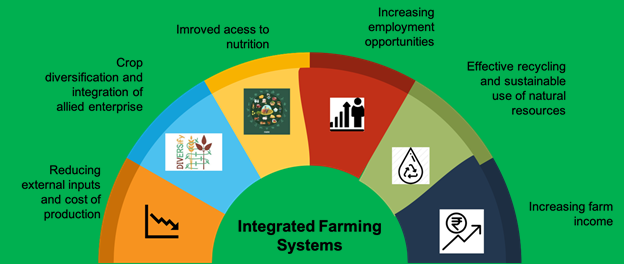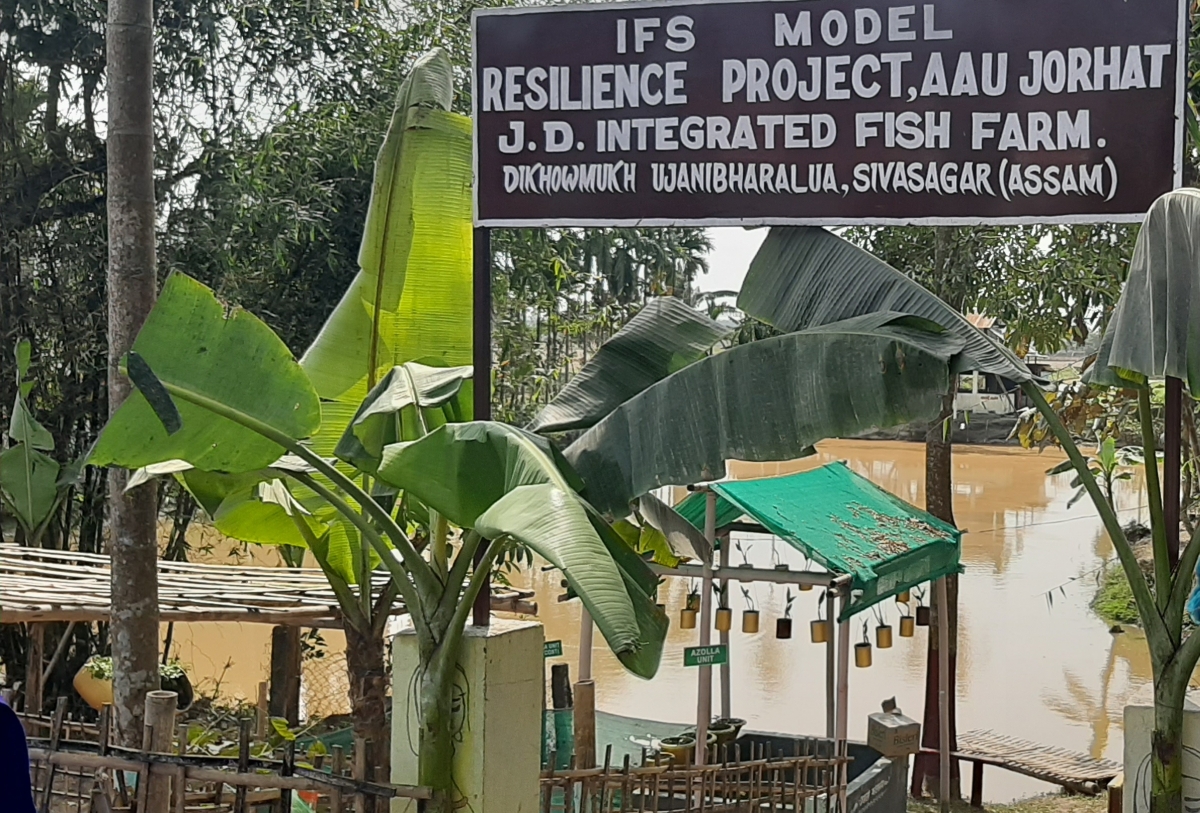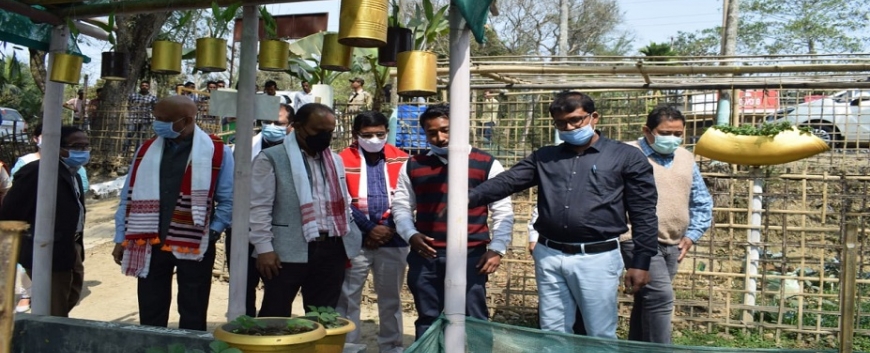Integrated Farming systems - Potential Climate Resilient Pathway for Small holders in climate risk prone regions in Assam
Building the capacity of men and women farmers on Integrated Farming System (IFS) and promoting its adoption is one of the climate resilient pathways in the RESILIENCE project. In the conventional farming, mono cropping of paddy and vegetables are largely cultivated without much integration to other allied enterprises. Hence farmers have been facing the risk in production due to the increasing climate risks, seasonal flooding and droughts. Hence, the project aims to reduce the climate risks by diversification and increase the adaptive risk management by taking scientific knowledge based decision making. The studies have proven that IFS can increase productivity by 2-3 times, save 40-60 percent resources and support 100 percent for household nutritional security.
To promote the IFS, efforts have been taken to demonstrate and train the farmers with the multiple objectives of facilitating integration, intensification and diversification of crops and allied sectors and recycle the resources effectively and promote diversified diets.

The model Integrated Farming System Farm was inaugurated on 3 March 2021 by The Hon’ble Vice Chancellor of Assam Agricultural University (AAU), Dr. Bidyut Chandan Deka along with Director of Research, AAU, Dr. Ashok Bhattacharyya and Director of Extension Education, AAU, Dr. Prasanna Kumar Pathak at Ujoni Bhorolua Village, Dikhowmukh, Sivasagar district in Assam.
with Director of Research, AAU, Dr. Ashok Bhattacharyya and Director of Extension Education, AAU, Dr. Prasanna Kumar Pathak at Ujoni Bhorolua Village, Dikhowmukh, Sivasagar district in Assam.
The IFS Model Farm is established by Assam Agricultural University, M.S. Swaminathan Research Foundation and International Water Management Institute in collaboration with Krishi Vigyan Kendra, Sivasagar. The farm has components such as Fishery, Fish hatchery, Goatery, Duckery, Piggery, Azolla unit (concrete and low cost), Mushroom Unit, Apiary, Forage grass, Poultry, vermicompost and various horticultural crop units along with paddy cultivation. As the low carbon technology, in the paddy, demonstration of SRI and AWD technologies on Boro rice is also integrated. One of the lead farmers articulated that such innovations will supports to increase the farm income, diversify the production throughout the year and increase the employment opportunities. While on the ecological side it has scope to effectively recycle the resources and reduce the external inputs. On the social side, it create additional employment opportunities for women and supports them to get engaged in value addition activities in the farm. Most importantly, on the nutritional side it aims to promote diversified diets which are important in the Covid-19 pandemics.
Capacity building programmes have been planned in the farm to the men and women farmers in the region on the cultivation of mushroom, apiary rearing, water saving techniques, integration of livestock and its fodder systems through digital tools. The Head, KVK Sivasagar, Dr. Prodip Handique and other officials also were also present in the program also reiterated the need for diversification and intensification of production systems and assured of extending necessary technical support to farmers. .


